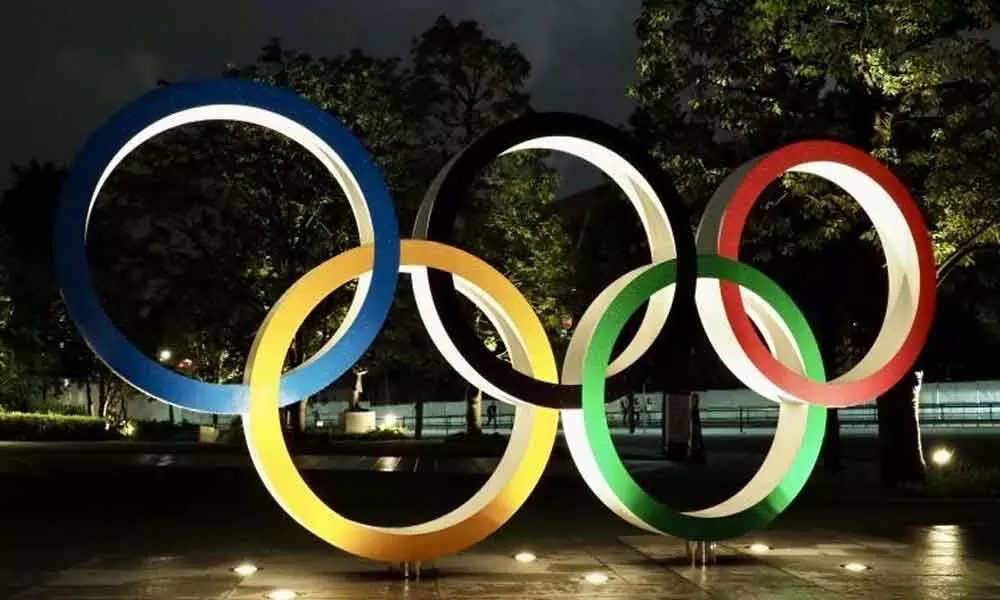India must compete, not merely attend Olympics – honestly

When the Indian athletes, seeking to improve upon the six-medal haul bagged at the 2012 London Olympic Games, managed only two at the 2016 Rio Olympics, the National Institution for Transforming India (NITI) Aayog came up with a plan for India to win 50 medals at the 2024 Olympics.
When the Indian athletes, seeking to improve upon the six-medal haul bagged at the 2012 London Olympic Games, managed only two at the 2016 Rio Olympics, the National Institution for Transforming India (NITI) Aayog came up with a plan for India to win 50 medals at the 2024 Olympics.
If that happens three years from now, all those involved in the making and implementing that scheme, besides the athletes who would win those 50 medals in Paris, would deserve the highest accolade of the country. They would thoroughly deserve all the prizes for what would probably be the biggest jump in terms of sudden improvement in the history of the world's biggest sports extravaganza – rather in the history of mankind.
Whether or not that happens is another question altogether. Let us first check the ground reality. India has won a grand total of 28 medals, nine of them being gold, in the 121 years of Olympic participation. On the other hand, American swimming juggernaut Michael Phelps won 28 medals, 23 of them gold, in just four Olympics (2004-2016). These figures tell a thousand tales of America's and India's sporting system/history. All arguments end there. Period. And just by the way, India is currently the second most densely populated country in the world with almost 1.3 billion people, while the US is a distant third with a little over 300 million inhabitants. The difference is humongous, stark, and telling.
If the US and Phelps in those 12 years has dominated the global sports scene it is because of one major factor, honesty, which is missing in India. They recognised the talent in Phelps and persisted with him, honestly, and without taking his transgressions off the field. The result is before us.
India immediately needs to turn honest in selection of athletes and teams, in providing quality infrastructure and diet to athletes, in providing unstinted official and unofficial support to athletes, in offering monetary incentives to them, and in giving them due recognition without vindictiveness and bias, and in several other areas.
Instead, we in India indulge in gimmickry. Our sports administrators must realise that medals, particularly at the Olympic Games, are not won by making 'best of luck' messages trend on Twitter or by producing catchy anthems before every Olympics or by organising webinars, or making unrealistic/bombastic predictions on medal count. Nor will avoiding straight answers and hiding behind 'hope-to-win' and 'it-all-depends-on-the-draw' do any good to Indian sports.
Also, no sporting excellence can be achieved by changing names and logos of sports bodies either. The sooner the Indian sports system, from administrators to athletes, accept these facts the better it would be for our beloved India. Unfortunately, everything listed above has either happened or is continuing to happen. Just before the 2016 Olympics as well, hype was built around the Indian athletes who were going to compete in Rio. Again, everyone knows what happened there. Just to refresh your memory, a 117-athlete contingent returned with a solitary silver and a solitary bronze and India finished at the 67th position. In 2012, an 83-strong group had won six medals and the country ended up at the 56th spot -- India's best show in 112 years of Olympic participation. India's basic sporting problem emanates also from the choice of words. Even in the 21st century, we are unfortunately still "participating" in sporting extravaganzas, and not "competing". When the term "competition" will be drilled deep in the minds and hearts of our athletes/administrators and "participation" would be completely banned from everywhere – from official correspondence to oral speeches to social media, a change in the mind-set would surely come in.
Medals are also not won by Olympic analysts based on statistical data, a recent trend. Medals are won by good performance on the field. To put it in other words, this statistical data is a type of prediction, which is again a feel-good aspect. Since this data is culled from various global sporting events, going back a certain number of years, it can be misleading too in the current scenario. Last month, a firm predicted 17 medals, including four gold, for India in Tokyo. If India indeed go on to win 17, or even more medals, I would be most happy. But the harsh reality is different: the analysts are not going to run, jump, throw, and play on behalf of our athletes in Tokyo. That is the job of athletes, and only their performance on the day would count, nothing less or more. Making populist statements on social media won't help one bit, believe it.

